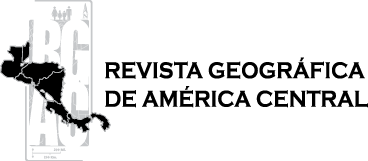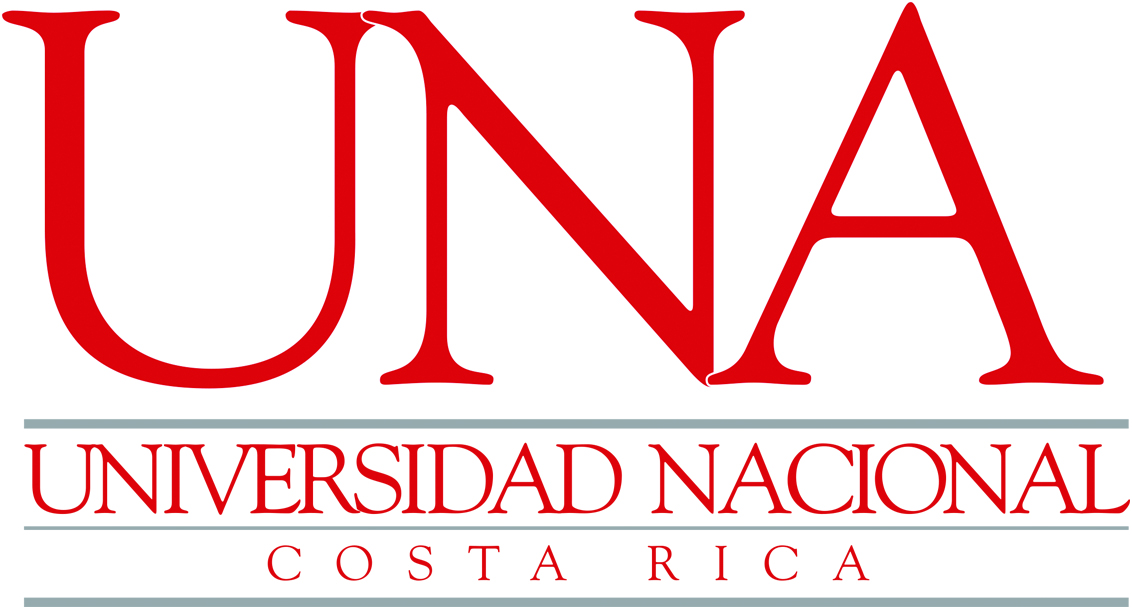 |
Revista Geográfica ISSN: 1011-484X Número 61E (3) Especial CLAG • Julio-diciembre 2018 Páginas de la 13 a la 20 del documento impreso |
PRESENTACIÓN
61(3) NÚMERO ESPECIAL
La Conference of Latin Americanist Geographers (CLAG) constituye desde 1970 un importante espacio de encuentro y de discusión, con la primera conferencia en Muncie IN, y posteriormente organizada en diversas universidades y países latinoamericanos; esta actividad proyecta y difunde el quehacer científico investigativo de la geografía en Latinoamérica. Bajo el lema “La Investigación Geográfica del Siglo XXI en América Latina se llevó a cabo 35a 35th Conference of Latin Americanist Geographers, del 20-22 de mayo de 2018, San José, Costa Rica. Afortunadamente la organización de la misma estuvo a cargo de las dos universidades que ofrecen planes de estudio en geografía; la Universidad Nacional y la Universidad de Costa Rica como coorganizadoras con la Universidad de Kansas, Estados Unidos, y con el apoyo de Sociedad de Geógrafos Americanos.
La CLAG 2018 representó un espacio para que Centroamérica compartiera sus avances en el desarrollo de la geografía y el tratamiento de los temas geográficos a través de esta disciplina científica poco conocida en nuestro medio, con los países en los cuales está disciplina es ampliamente reconocida y valorada. La Geografía en Costa Rica muestra un desarrollo sostenido desde 1940, con la inserción de los primeros cursos a nivel universitario, posteriormente con planes de estudio en la formación de profesionales que se ocupan del abordaje de temas relevantes para el desarrollo; esta disciplina se reconoce en la región con un gran potencial para aportar en la solución de problemas del ámbito socio territorial pero que requiere posicionarse y promoverse a nivel institucional y en la sociedad promocionando su quehacer y sus alcances, para lo cual la realización de la CLAG 2018 contribuyó en este esfuerzo de difusión y proyección deseada.
La realización de la CLAG 2018 en Costa Rica, fue un espacio propicio para mostrar los productos académicos de las investigaciones en temas relevantes para el desarrollo; políticas migratorias, pobreza, acceso a la tierra y sus recursos, territorios indígenas, territorialización espacial, ciudades latinoamericanas, dinámicas urbanas, dinámicas del turismo, enseñanza de la Geografía; cambio climático, gestión de riesgos, recursos naturales, cuencas hidrográficas, políticas en manejo del agua, erosión de suelos, contaminación, problemas ambientales, recursos naturales y conservación, servicios ambientales, planificación costera, recursos marinos, agroecología, ecología, cultura, energías alternativas, narco-fronteras y territorios en conflicto, cartografía participativa, geografías emergentes, entre otros. La connotación de la CLAG 2018 a nivel región ofreció la posibilidad de mirar la región centroamericana como un espacio diverso pero unificado, sino homogéneo comparte preocupaciones y problemas similares, que puede proponer soluciones conjuntas a problemas recurrentes y emergentes que trascienden el ámbito de sus fronteras territoriales. Las conferencias magistrales presentadas por reconocidos expositores: a)Territorio y Tiempo: El Riesgo de Desastre como Proceso: el Aporte de la Geografía, b) Patrimonio geológico, geopatrimonio y geoparques; perspectivas en América Latina, c) Canales, Volcanes y Balcanes: Elementos de análisis geopolíticos sobre la construcción imaginaria del Canal Interoceánico en América Central, d) La integración inacabada de América Central. Una perspectiva geohistórica. Además, se presentaron dos relevantes foros: Reflexiones indígenas sobre el narcotráfico, los “narco-paisajes”, las áreas protegidas, la territorialidad y el uso de la geografía y cartografía para los Miskitu y otros pueblos indígenas en América Central y el foro Marco Geoestadístico: infraestructura de información del Sistema Nacional de Información Estadística y Geográfica (SNIEG) – México, ofrecieron justamente un panorama homogéneo en la diversidad.
Este evento indudablemente constituyó una oportunidad abierta para el fortalecimiento de redes y alianzas especialmente con aquellos países en los cuales la Geografía se ha desarrollado con gran éxito, países del norte-Estados Unidos, Canadá, México y países del sur separados por el istmo centroamericano, especialmente Brasil, Chile, Argentina, Perú y Colombia; favoreciendo –esperamos- el intercambio académico y muy especialmente abriendo espacio para las nuevas generaciones de geógrafos que buscan un lugar en su país y en el mundo para su formación profesional y sus espacios laborales. Así mismo para que nuestros países establezcan lazos de cooperación y vínculos con universidades y centros de investigación, acercando a académicos, investigadores con miras a fortalecer la docencia, la investigación y el trabajo de extensión que se realizada en las comunidades locales.
La realización 35th Conference of Latin Americanist Geographers (CLAG) 2018 en San José Costa Rica, en el céntrico Hotel Aurola Holyday Inn contó con la participación de 210 profesionales interesados en temas e investigaciones geográficas. Costa Rica, por su ubicación geográfica no solo acercó a geógrafos de la región, sino que es un espacio intermedio para facilitar la venida de geógrafos latinoamericanistas de los diversos países. La CLAG dio la oportunidad además; para que Costa Rica mostrara a los visitantes un espacio relativamente pequeño en términos de superficie terrestre; pero que se distingue por su diversidad geográfica, su gran riqueza de recursos naturales, culturales e históricos; sus bellezas escénicas y paisajísticas y especialmente su gente; reconocido por su ecoturismo y los servicios derivados del mismo. El evento fue una oportunidad para que los visitantes se interesaran en recorrer diferentes puntos del país, y aprovecharan los viajes académicos programadas para compartir la geografía y los recursos turísticos; se realizaron tres giras académicas: Coffee Tour Los Santos: visita a los volcanes y plantaciones de café, examinando lo que ha sido la cosecha agrícola más importante del país, b) Monte Verde viaje que explora la hermosa zona de conservación de la selva costera a lo largo de la costa pacífica de Costa Rica. c) Limón y las Tierras Bajas del Caribe con la visita a las poblaciones históricamente mixtas afrocaribeñas y criollas en Puerto Limón.
Igualmente no todo fue conferencias y actividades formalmente organizadas; hubo oportunidad para degustar los cafés intermedios y la comida típica costarricense. Además la “Cimarrona”, gran sorpresa de la clausura resultó un espacio de entretenimiento y diversión de la cual conservamos videos y fotografías divertidas. Para muchos asistentes este fue su primera participación en una conferencia de la CLAG, esperamos que la misma motive su participación futura en este importante foro de discusión.
Aunque sería imposible recoger todas las experiencias en un documento de las más de 200 ponencias y 20 poster, la Revista Geográfica de América Central, se propuso como un medio para divulgar aquellos trabajos que tuvieran a bien enviar los documentos en extenso de la ponencia presentada. Es así como el presente número cumple con el objetivo prometido, 30 trabajos se incluyen en este número digital. Esperamos que su lectura inspire el trabajo profesional que cada uno y una realiza en su ámbito académico y profesional.
MSc. Lilliam Quirós Arias
Mag. Consuelo Alfaro Chavarría


